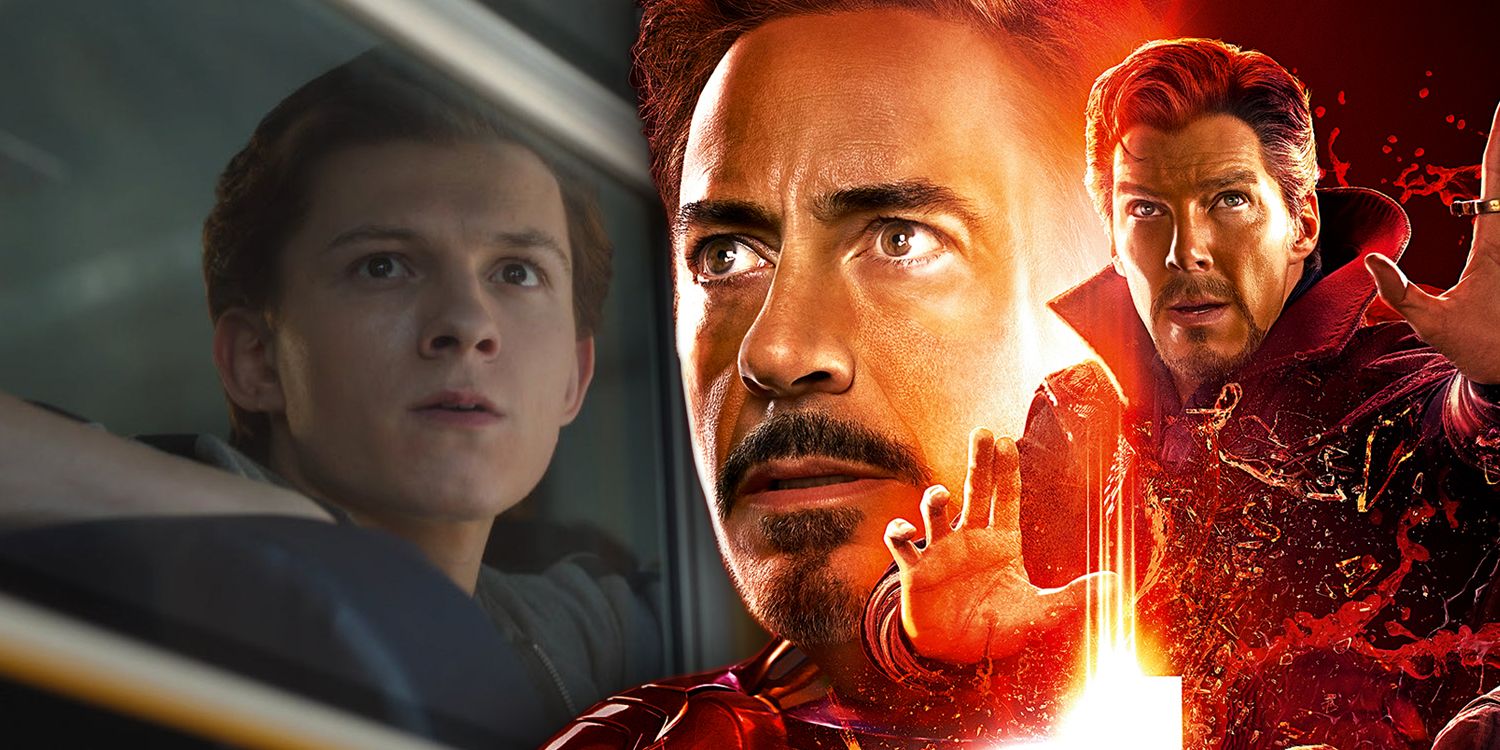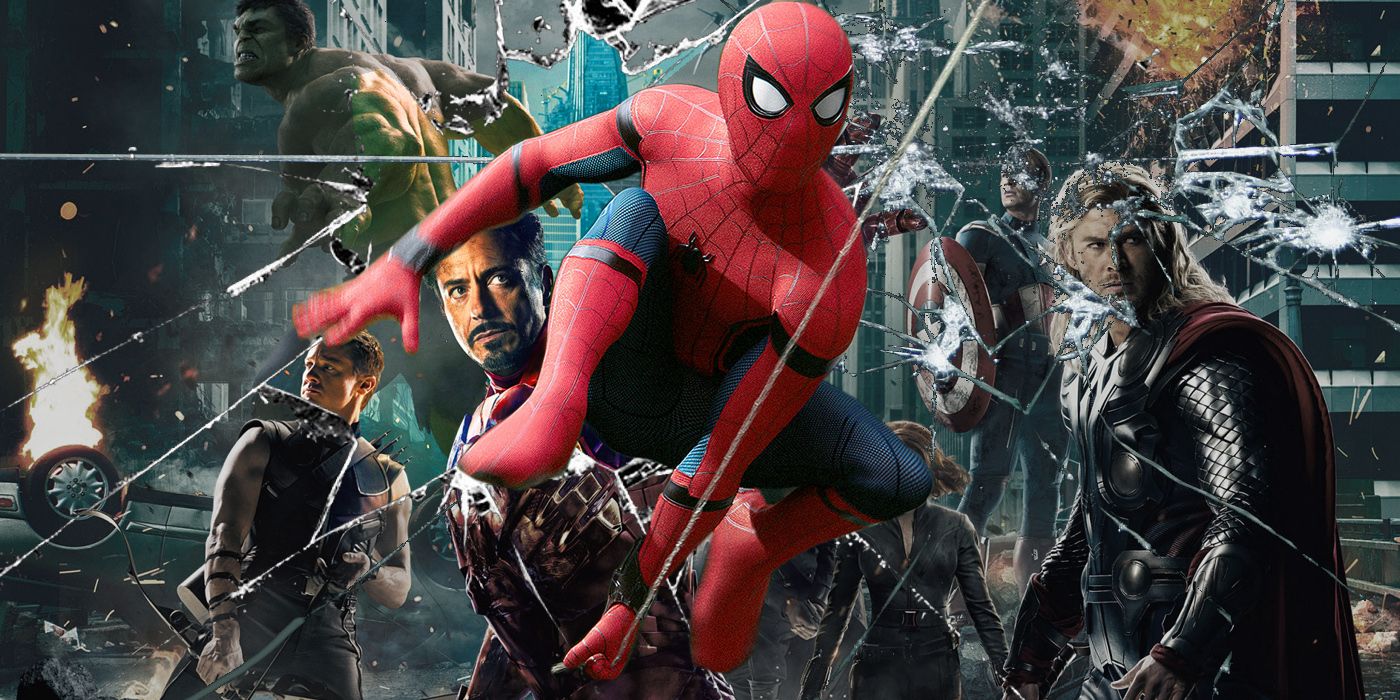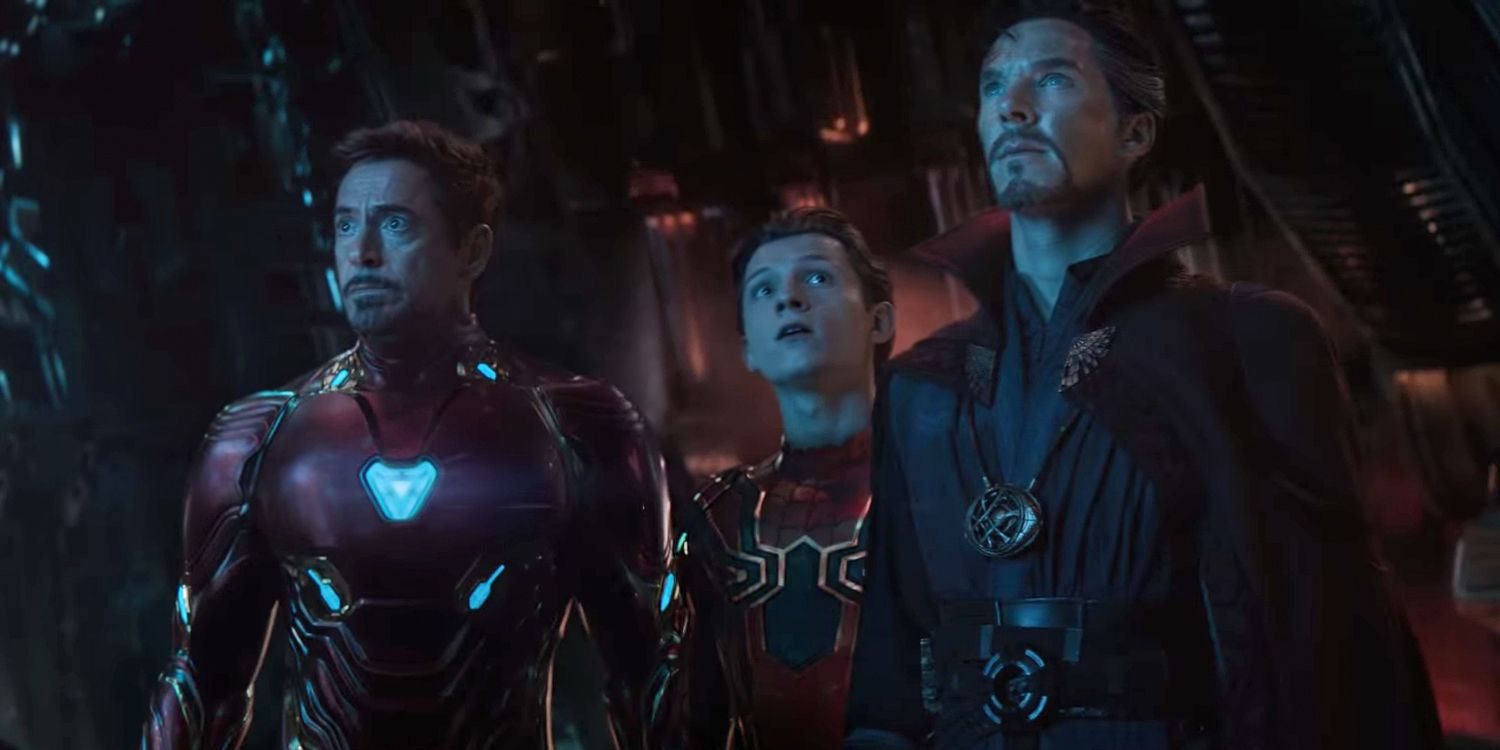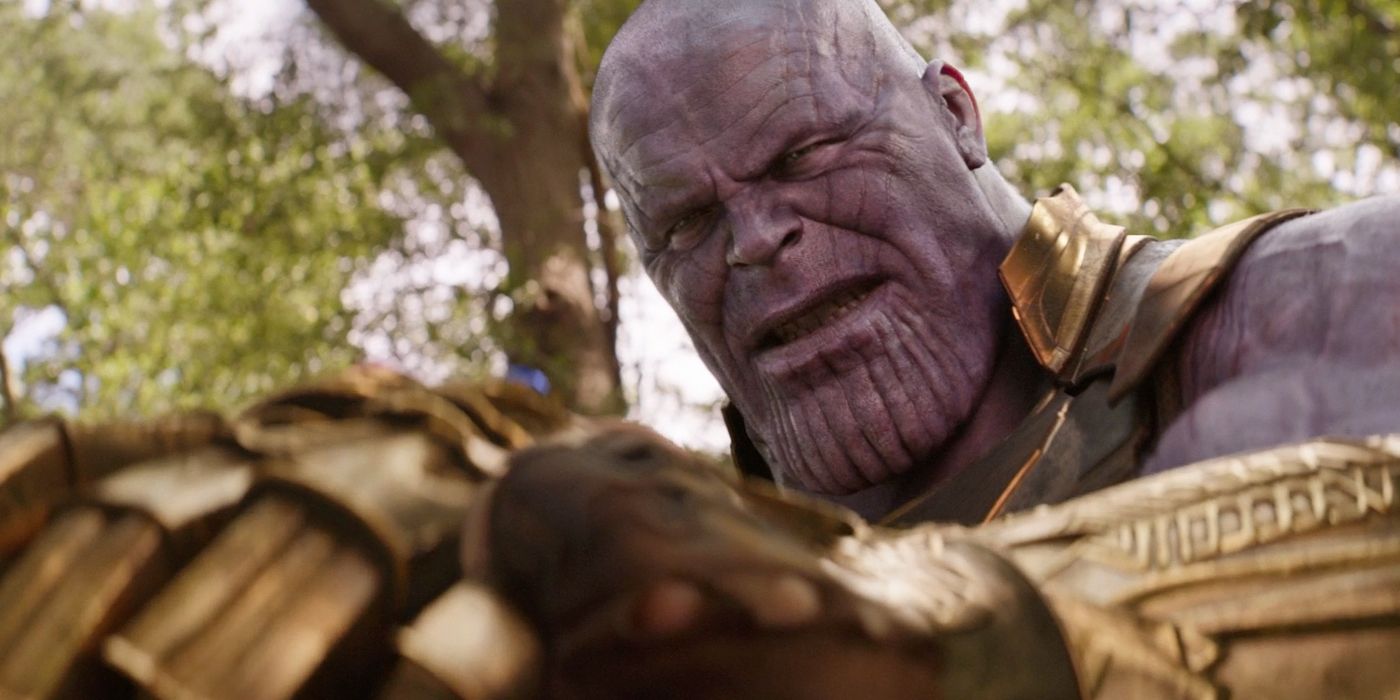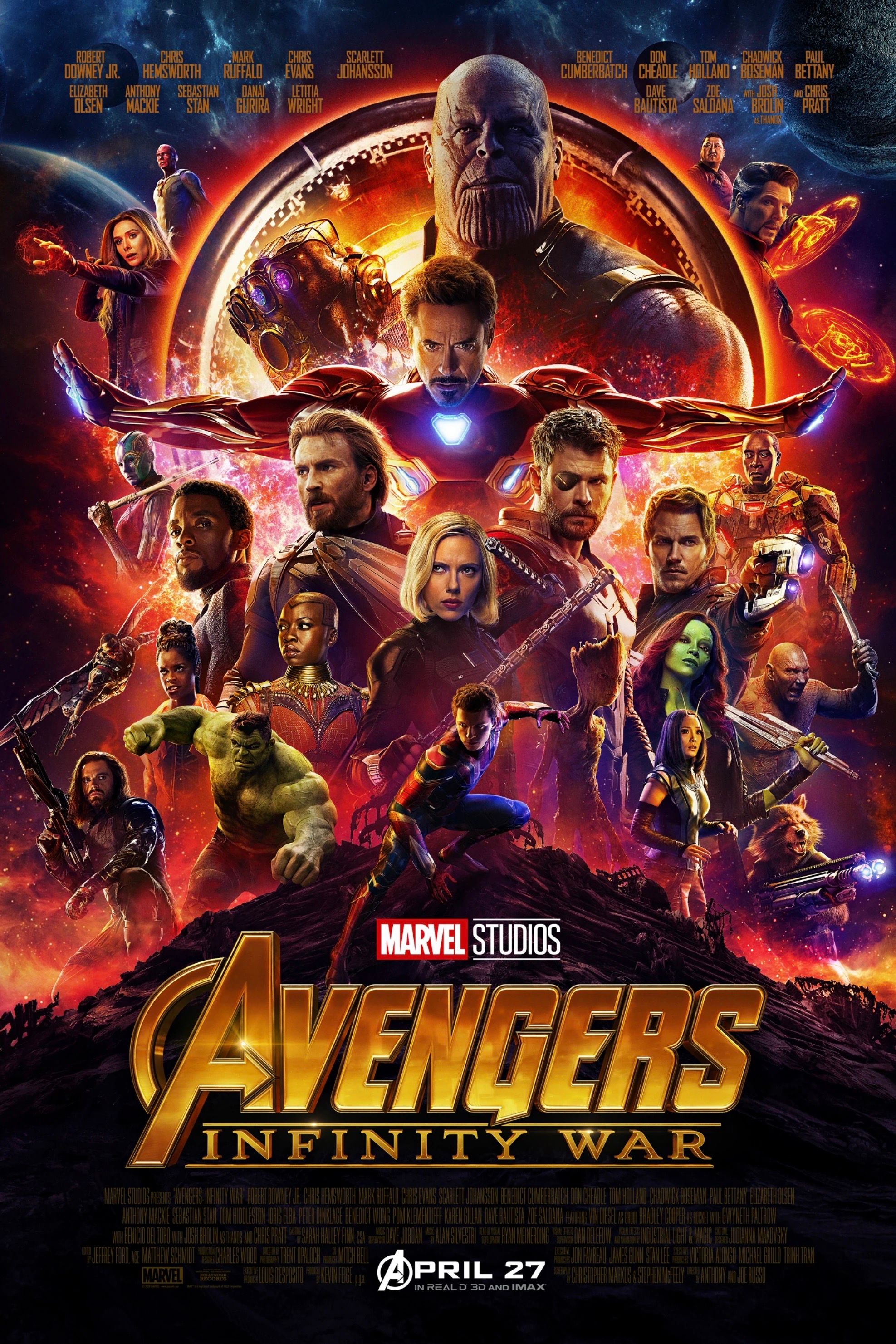Avengers: Infinity War doesn't just serve as the culmination of ten years of the MCU, it actually fixes Marvel's broken timeline. The past year has been a rollercoaster for continuity-minded Marvel Cinematic Universe fans, with each new movie seemingly going out of its way to create some form of contradiction. Finally, it looks to be over - even if it's not the most elegant solution.
In the early days of the MCU, the "it's all connected" mantra seemed to be the defining drive, with Kevin Feige and co. going all out to make sure the shared universe lined up, even releasing short films to clear up issues when production changes altered the vision. In the decade since, though, things have changed, with more and more cracks appearing in the Marvel timeline. As Phase 3 begins its final lap, some of the resulting holes are so big you could fit a Celestial through them.
Related: A Complete History Of The Marvel Cinematic Universe
Now, it's worth clarifying this is inevitable on a practical level. When you're dealing with this many movies from varied and diverse creative teams, often produced concurrently and with changes made all through development (as usual, we're not even going to touch on the TV shows or other extended universe material as they intrinsically just don't line up), maintaining a cohesive timeline that makes complete sense was always going to be tricky. And, more importantly, the micro continuity concerns don't matter as long as the big picture works; consistent characters is what's really essential.
Still, that doesn't make it any more delightful that Avengers: Infinity War does, with little fanfare, provides all the pieces needed to put this sorry affair behind.
- This Page: How Infinity War Corrects The Timeline (No Spoilers)
The Problem With Marvel's Timeline
The problems with the timeline really began in Phase 3, with each movie introducing some form of continuity goof or plot hole - see Guardians of the Galaxy Vol. 2 forgetting it was set in 2014 or Black Panther making Captain America: Civil War's mid-credits scene impossible - although what really broke things was Spider-Man: Homecoming.
While the web-slinger's solo MCU debut slotted into the broad narrative neatly enough, unfolding in the aftermath of Captain America: Civil War, everything was thrown out of whack by a card at the start which placed the film eight years after the events of The Avengers; every dating prior had suggested it was taking place only four per dating in Civil War. This came just a year after that versus movie itself had claimed to be eight years on from Iron Man, itself two years before The Avengers.
Read More: Spider-Man: Homecoming Breaks The MCU Timeline
The whole thing was a headache that fans tried desperately to make sense of. Various potential timelines proposing solutions to Marvel's continuity woes were concocted, but each one stretched out the films or otherwise introduced new contradictions. In fact, we proved earlier this month that by simple re-dating, the MCU timeline is completely unfixable, something that was echoed by Infinity War director Joe Russo, who called it a "very incorrect eight years". That was the first official admittance from someone involved with Marvel that something was amiss, but nothing suggested that Russo's film would also provide the in-universe solution.
How Infinity War Subtly Fixes Marvel's Timeline
Early on in Avengers: Infinity War, Tony Stark is talking to Doctor Strange and states that aliens attacked New York six years ago, an oblique reference to the Battle of New York in The Avengers. As the is two years after Civil War (per Rhodey when reuniting with Team Cap), that puts Homecoming the correct four years after The Avengers.
OK, so this isn't a proper fix that explains and integrates the "eight years later" gaff, more an adjustment that gives it a wide berth - but it works. Infinity War is ignoring the card altogether and returning us to the original status quo; that unless otherwise explicitly stated (see Guardians Vol. 2 being set shortly after the first), then the movies take place at the time of release. Infinity War is in 2018, The Avengers 2012, and Civil War (and by extension direct follow-ons Homecoming, Black Panther and Ant-Man & the Wasp) in 2016.
What makes this so impactful is that Infinity War is elsewhere also spot on with its timeline. Due to most of the MCU's Phase 3 being out of order, many of the direct lead-ins to Avengers 3 technically take place years prior - Black Panther is two years before; Guardians Vol. 2 is four; some time has passed even since Thor: Ragnarok - and yet each feels suited there; T'Challa has had time as king and the Guardians dynamic has become even more familial.
Related: What Is Avengers 4's Title? We Have A Cool Theory
But that's not the sum of it. Infinity War is told in a way that may render timeline issues a complete thing of the past, but to look at that we need to go into SPOILERS...
How Infinity War Protects The Marvel Timeline
Infinity War's ending is a shocker to be sure: Thanos gains all six Infinity Stones and snaps his fingers, wiping out half of all life in the universe, including a bunch of major Avengers. It's a major MCU event, one that will take a whole other team-up to resolve. Given that Avengers 4 will, in some form, involve time travel (set photos showed characters revisiting the events of old movies), that means nothing can truly be broken afterward; the moment you start meddling with the past, everything is in flux. In fact, we've already theorized that this will be used by Marvel to correct all the previous continuity issues and create one cohesive timeline.
Read More: Avengers 4 Can Fix Marvel's Broken Timeline
That freedom also means Marvel can get away with two of their most timeline-risky films yet. Understandably given their predecessor's twist, both Ant-Man & The Wasp and Captain Marvel are set before the events of Infinity War; in the aftermath of Civil War and the 1990s respectively. Both of these poses their own issues: Ant-Man has to deal with all the pitfalls that befell Spider-Man and Black Panther; and Captain Marvel must someone connect to S.H.I.E.L.D. and Guardians of the Galaxy without breaking a multitude of returning character's roles. The latter is in particularly dire straights given Nick Fury and Agent Coulson aren't meant to have met anything truly not of this world until Thor, something that may only be explainable by bringing in alternate timelines.
Infinity War's ending basically puts paid to all that. It's not that any problems won't exist, but it's on a narrative scale that the micro-continuity is even smaller, almost Quantum Realm level. In fact, the biggest concern left is with what comes after.
How To Address Spider-Man's Aging
All of this discussion comes with one massive addendum: Spider-Man's age. If we're going to be moving forward in real time and his initial appearance was in 2016, yet per story reports for Homecoming 2 still keep Peter in school, we're dealing with a limited timeframe. Can it work?
As Avengers: Infinity War is two years after Civil War, it's also just under two years on from Homecoming (which ends in October). By that logic, Peter Parker should be coming to the end of the school year after the one he was in last we saw him. Assuming MCU Peter has the same birthday as comic Peter, he was a Sophomore in Homecoming, meaning he's now a Junior. That logic just about holds - he's 18 months older and still in school - and means Homecoming 2 can take place at the end of his Senior year (assuming it's set in release month of July 2019, which given Avengers 4 will be messing with time needn't be a sure bet).
Related: Avengers: Infinity War Solves The MCU's Biggest Problems
However, everything hinges on this being the case and it being maintained. If Spider-Man: Homecoming 2 tries to be set the school year after, or Avengers 4 has its own time leap, who knows what we could be left with. That's the problem with a timeline. You're only as good as your last plot hole fix.

